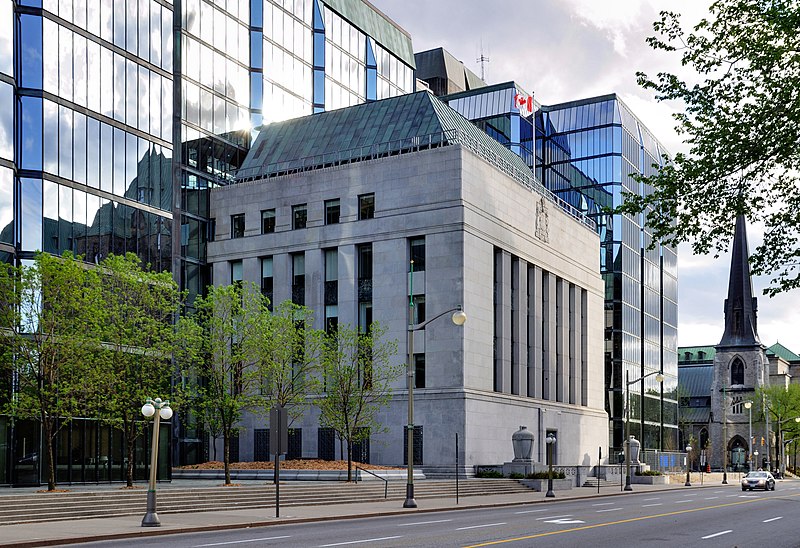7481 Woodbine Ave #203, Markham, ON L3R 2W1 (647) 806-8188
Copyright © 2021 CondoTrend. All rights reserved.

The economic climate is growing more unfavorable for the Canadian real estate industry. With inflation hitting four-decade highs and anticipated to climb further in the near future, the Bank of Canada has adopted a more aggressive strategy that, according to RBC, will result in its policy interest rate reaching restrictive levels by September. This will make people less likely to buy, especially in British Columbia and Ontario, where money is tight.
The first signs of a market decline occurred soon after the bank initiated its March rate rise. RBC believes that the downturn will continue over the next several months, with sales activity and property prices falling below expectations. We expect that resale home sales in Canada will decrease by over 23% this year and 15% next year, and that the national benchmark price will fall by more than 12% from its peak to its trough by the second quarter of 2023. RBC predicts a wide range of regional results, with bigger drops in the more expensive and interest-sensitive areas and more stability in the less expensive ones.
The hefty 100 basis point increase in interest rates implemented by their central bank on July 13 will surely accelerate the market’s short-term cooling phase. Despite the fact that the decision will not necessarily result in a higher terminal point—the RBC still anticipates that the overnight rate will reach 3.25% by October—it is a significant blow to borrowers that will derail or postpone the ambitions of a great number of prospective buyers to acquire a home. The rise almost pushed variable mortgage rates to parity with fixed mortgage rates, denying buyers access to extremely cheap borrowing costs.
Rising rates have a significant influence on the affordability of housing. By the time the Bank of Canada is through, RBC’s national affordability index may be at its lowest level ever, with Vancouver, Toronto, Victoria, and other expensive locations in the lead. As a result, RBC anticipates that demand in Ontario and some regions of British Columbia will continue to drop. Things will also grow more difficult in other Canadian areas, but to a lesser degree due to relatively more affordable starting places and less interest rate sensitivity. Higher qualification rates for the mortgage stress test will discourage overextended buyers throughout the country. And if interest rates go up for customers, the amount they can borrow and the most they can spend on a house will go down.

RBC forecasts a 17% reduction in Canadian home resales by early 2020, after a 19% drop in the second quarter and 13% drops in the first quarters of 2021 and 2022. This 42% decline (from record high levels) since the beginning of 2021 would exceed the peak-to-trough declines of all four preceding national recessions (33% in 1981-1982, 33% in 1989-1990, 38% in 2008-2009, and -20% in 2016-2018).
As a consequence of a steep reduction in demand and a serious affordability issue in some parts of the country, RBC thinks prices will have to fall. RBC anticipates that the RPS national composite home price index will fall by more than 12% by the start of 2023. This slump would also be the most severe of the previous five national recessions. The magnitude of the modification is projected to be larger for other price measures. As buyers seek more affordable options, the average price of homes sold in Canada, for example, might decline by 17% or more (quarterly) due to a shift in the sales mix toward less costly locales and housing types. Between the first and second quarters of this year, the average price fell 8.6%, with notable drops in Ontario (-7.6%) and British Columbia (-8.1%) (-4.9%).

RBC believes purchasers in expensive locations are the most vulnerable to interest rates and will suffer the most in the future. In 2022 and 2023, RBS forecasted that house resales in British Columbia and Ontario would collectively decrease by 45% and 38%, respectively, setting the groundwork for a home price index slide in both provinces exceeding 14% from quarterly peak to trough. The collapse would be comparable to that of the early 1990s in Ontario (when resale prices fell 41% and resale volume fell 15%), but it would be far less severe than that of the early 1980s in British Columbia (when resales slumped 62% and prices fell 27%). While RBC anticipates that resale activity will decline by more than 20% in every other province this year and next (from all-time record levels), it forecasts that prices will remain steady in the nation’s more affordable regions. RBC anticipates that prices will decrease by less than 3% in Alberta and Saskatchewan and between 5 and 8% in the majority of other provinces during the first half of 2023.
Source: https://thoughtleadership.rbc.com/downgrading-our-forecast-for-canadas-housing-market/
7481 Woodbine Ave #203, Markham, ON L3R 2W1 (647) 806-8188